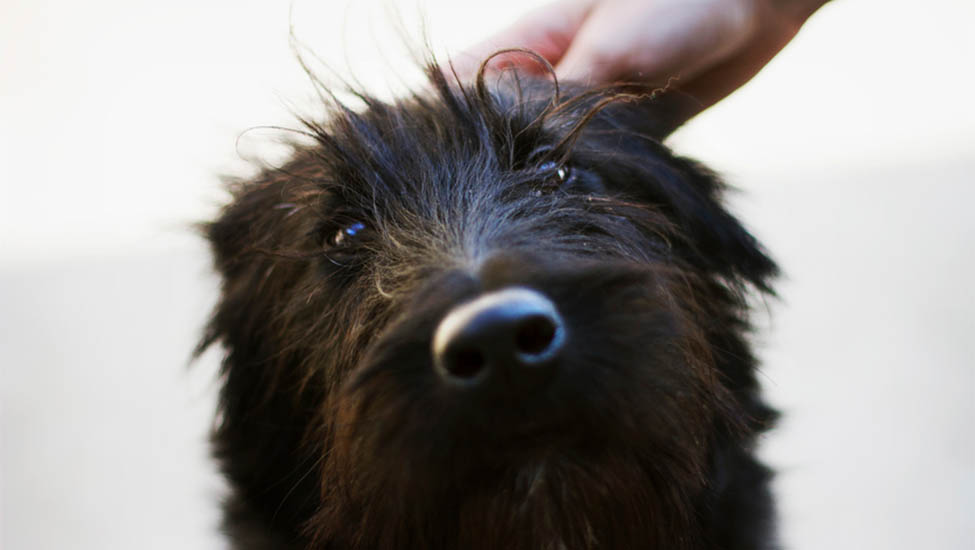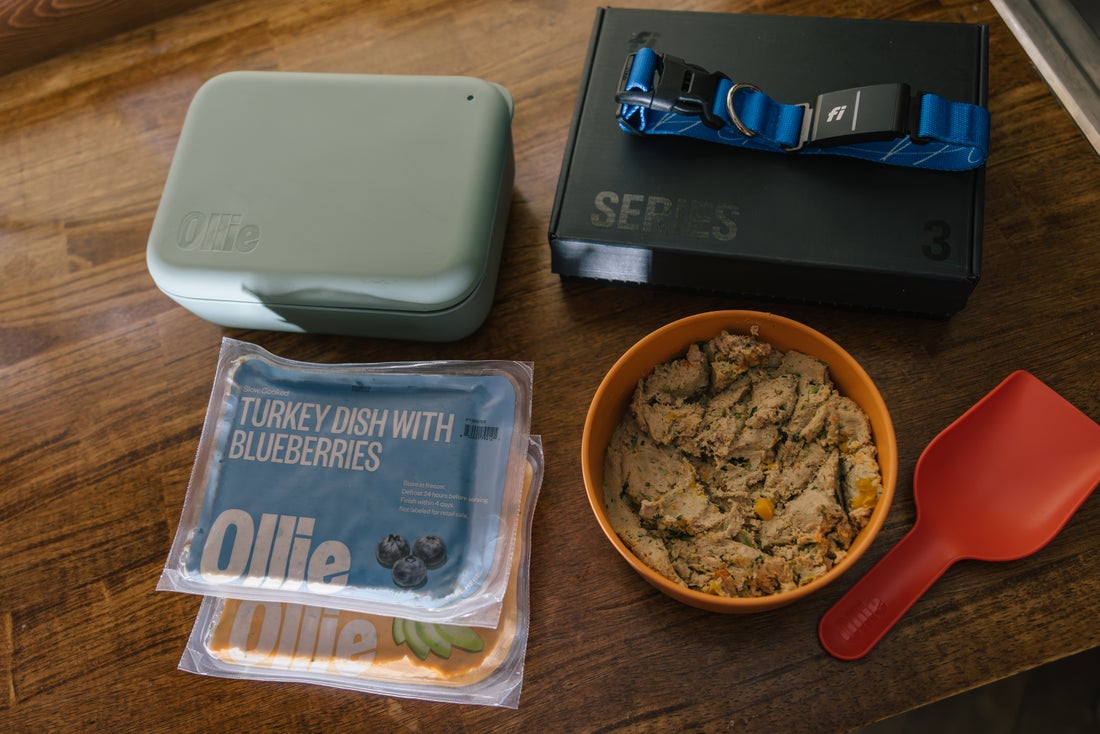Hey Ollie blog readers! We’re offering you an exclusive 60% OFF your starter box! Try now!
Pups may not have the same sense of embarrassment as humans when it comes to something like dandruff, but that doesn’t mean we should ignore it. Beyond the not-so-attractive flakes, scaly skin can be a sign of something more serious, health-wise. We talked to Jeanne Budgin, DVM, a specialist at Riverdale Veterinary Dermatology, who filled us in on why pups get dandruff and what you can do about it.
Figure out the source of the flakes
Turns out, there’s a lot more than dry skin that can cause dog dandruff: "There are no breeds that are more susceptible because there are so many causes,” says Dr. Budgin. According to her, it can be caused by bacterial infections (caused by allergies), nutritional imbalances, parasites (there’s a skin mite caused “walking dandruff”), and endocrine, glandular or immune-mediated disease. It can also be a consequence of low environmental humidity—in the same way our skin gets flaky when it’s cold outside.
Determine the right treatment
Consulting your veterinarian to determine the cause of the dandruff is your first step. He or she can help you figure out if you need to take more serious measures, like taking antibiotics to treat a bacterial infection—or investing in a humidifier if it’s a dry environment is the cause. There are also “shampoos and sprays available containing ingredients such as ceramides and phytosphingosine that may improve the skin barrier function and improve the signs of dryness,” advises Dr. Budgin.
Address your pup’s diet
Dogs are what they eat—just like us—and it’s reflected in the quality of their skin and coat. So make sure your pup is getting the proper amount of vitamins, minerals and fat through their food: Switching to a balanced, high-quality diet can make a difference when it comes to dandruff. Dr. Budgin also recommends “supplementing fatty acids, often in the form of fish oil, may also improve the condition.” And make sure your pup is sufficiently hydrated!
Get their groom on
Daily brushing can help with dandruff because it keeps their fur smooth and shiny by distributing the coat’s natural oils. Regular baths can help, too, especially if you’re using moisturizing shampoos and conditioners—those containing oats and aloe vera are especially soothing (no Head & Shoulders!) Rinsing your pup after with a mixture of lime juice and water can also help protect their skin from dandruff-causing infections.
The Ollie blog is devoted to helping pet parents lead healthier lives with their pups. If you want to learn more about our fresh, human-grade food, check out MyOllie.com.
Tagged As:

The nutrition your dog needs,
the food they want.

Enjoying our articles? Subscribe our Newsletters and get new articles directly to your inbox
You might also like
9 October 2025
4 MINS READ
How Fresh Food Can Help Soothe Your Dog’s Allergies
As a pup parent, watching your dog suffer from the constant discomfort of allergies is always distressing. The endless scratching, irritated skin, and digestive upset can take a toll on your pup�…
by Ollie Pets
18 September 2025
4 MINS READ
Is Fresh Dog Food Easier to Digest?
Yes, fresh dog food is generally easier for dogs to digest than highly processed kibble. Because it’s made with whole ingredients, gently cooked, and free from unnecessary fillers, fresh food supp…
by Ollie Pets
18 September 2025
5 MINS READ
Can I Rotate Fresh Dog Food Flavors?
Yes, it’s safe to rotate fresh dog food flavors, and many dogs actually benefit from the variety. At Ollie, we offer multiple fresh recipes, like Beef, Chicken, Turkey, Lamb, and Pork so you can…
by Ollie Pets







